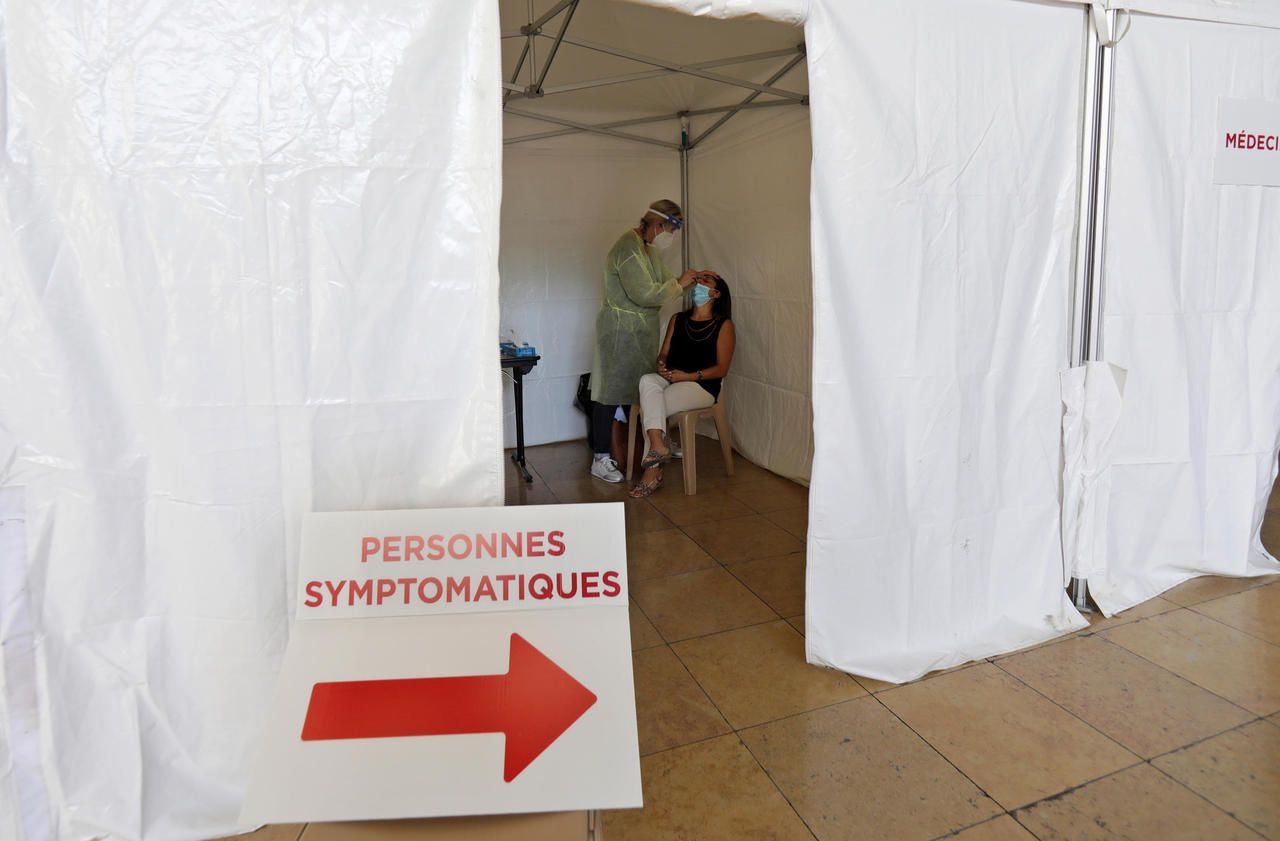In this collective forum, 35 scientists, academics and health professionals criticize government policy and communication.
According to them, they are more a display of a "protective posture" than a specific health strategy.
“We, scientists and academics from all disciplines, and health professionals, exercising our free will and our freedom of expression, say that we no longer want to be governed by and in fear.
French society is currently in tension, many citizens are panicking or on the contrary laughing at the instructions, and many decision-makers are panicking.
It is urgent to change course.
We are not at war but facing an epidemic that caused 30 deaths on September 9, compared to 1,438 on April 14.
The situation is therefore not at all the same as 5 months ago.
Moreover, if war can sometimes justify a state of emergency and exceptional restrictions on the rule of law and public freedoms which are the basis of democracy and the Republic, this is not the case for an epidemic.
Today as yesterday, this crisis must unite us and empower us, not divide us or submit.
This is why we call on the French political and health authorities to stop instilling fear through anxiety-provoking communication that systematically exaggerates the dangers without explaining the causes and mechanisms.
We must not confuse enlightened accountability with moralizing guilt, nor civic education with infantilization.
We also call on all journalists to no longer relay without distance a communication that has become counterproductive: the majority of our fellow citizens no longer trust official speeches, conspiracies of all kinds abound on social networks and extremisms in profit.
General confinement, an unprecedented measure in our history, has had sometimes terrible individual, economic and social consequences which are far from having all been manifested yet and having all been evaluated.
Leaving the threat of its renewal is not responsible.
We must obviously protect the weakest.
But just like the imposition of the wearing of masks in the street, including in regions where the virus does not circulate, the effectiveness of containment has not been scientifically demonstrated.
These general and uniform measures, imposed under police surveillance, stem more from a desire to display a protective posture than from a precise health strategy.
Hence their great volatility for six months.
Many other countries are acting with more consistency.
European coordination would be necessary.
Newsletter - Most of the news
Every morning, the news seen by Le Parisien
I'm registering
Your email address is collected by Le Parisien to enable you to receive our news and commercial offers.
Learn more
We also call on the government not to exploit science.
The sine qua non of science is transparency, pluralism, adversarial debate, precise knowledge of data and the absence of conflicts of interest.
As the Covid-19 Scientific Council does not meet all of these criteria, it should be overhauled or deleted.
We would also like to point out that the first to treat the sick are general practitioners.
Removing them from the fight against Covid, by not providing them with tests or masks and by suspending their freedom to prescribe the authorized drugs of their choice was an error that must not be repeated.
On the contrary, all caregivers must be mobilized, equipped and united in order to improve our reaction capacities and not restrict them.
Finally, the imperatives of protection against contagion must not lead to betraying medical ethics and fundamental humanist principles.
Isolating the sick and protecting those at risk does not mean depriving them of all rights and all social life.
Too many elderly people have died and are still deteriorating in abandonment motivated by unjustified health reasons.
Too many families suffer from not being able to provide them with the affection essential to their happiness and their health.
We urgently need to get back to thinking together to democratically define our health strategies, restore the confidence of our fellow citizens and the future of our youth.
"
The first signatories
Jean-François Toussaint, professor of physiology at the University of Paris; Laurent Mucchielli, sociologist, research director at CNRS; Bernard Bégaud, professor of pharmacology at the University of Bordeaux; Gilles Bœuf, professor of biology at Paris-Sorbonne University; Pierre-Henri Gouyon, professor of biology at the National Museum of Natural History; Jean Roudier, professor of rheumatology at the University of Aix-Marseille; Louis Fouché, doctor, anesthetist-resuscitator at the Hôpital de la Conception; Olivier de Soyres, doctor, resuscitator at the Cedars clinic; Christophe Lançon, professor of psychiatry at the University of Aix-Marseille; Laurent Toubiana, epidemiologist at Inserm; Mylène Weill, biologist, research director at CNRS; Anne Atlan, population geneticist and sociologist, research director at CNRS; Bernard Swynghedauw, biologist, emeritus research director at Inserm; Marc-André Selosse, professor of microbiology at the National Museum of Natural History; Jean-Louis Thillier, doctor, immunopathologist; Jean-François Lesgards, biochemist, researcher at CNRS; Alexandra Menant, biologist, researcher at CNRS; André Comte-Sponville, philosopher; François Gastaud, orthopedic surgeon in Strasbourg; Éric Desmons, professor of public law at Sorbonne Paris Nord University; Dominique Andolfatto, professor of political science at the University of Bourgogne Franche-Comté; Charalambos Apostolidis, professor of public law at the University of Bourgogne-Franche-Comté; Nicolas Sembel, professor of sociology at the University of Aix-Marseille; Dominique Crozat, professor of geography at the University of Montpellier; Marnix Dressen-Vagne, professor of sociology at the University of Versailles Saint-Quentin-en-Yvelines; Thomas Hippler, professor of contemporary history at the University of Caen-Normandie; Nicolas Leblond, Senior Lecturer in Law at the Hauts-de-France Polytechnic University; Dominique Labbé, political scientist, professor emeritus at the University of Grenoble-Alpes; Arnaud Rey, researcher in psychology at the CNRS; Mathias Delori, political scientist, researcher at CNRS; Jacques Tassin, ecologist, researcher at the Center for International Cooperation in Agricultural Research for Development (CIRAD); Sylvie Gourlet-Fleury, ecologist, researcher at CIRAD; Emmanuelle Sultan, doctor in physical oceanography, research engineer at the National Museum of Natural History; Christophe Leroy, biologist, doctor in molecular and cellular biology; Bernard Dugué, doctor of pharmacology, doctor of philosophy

